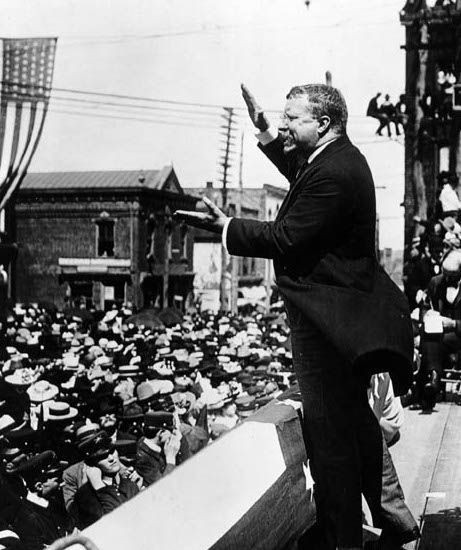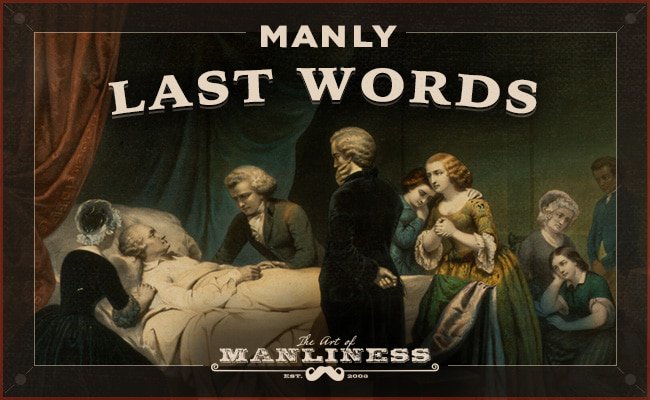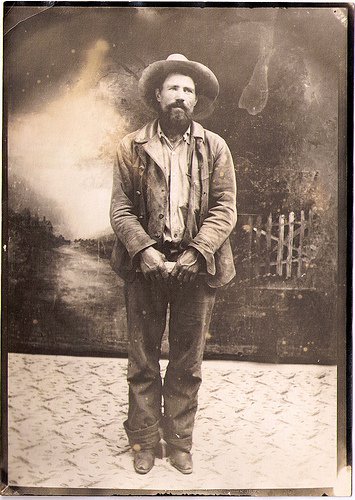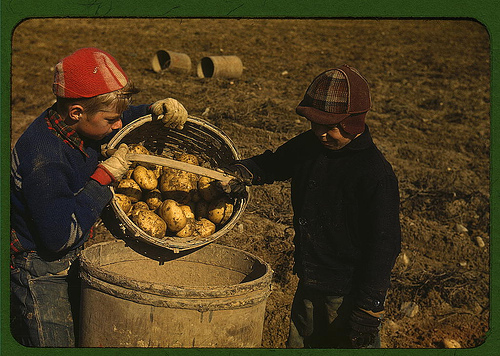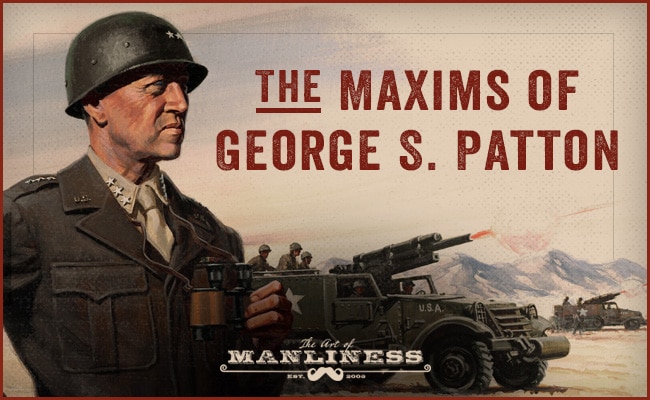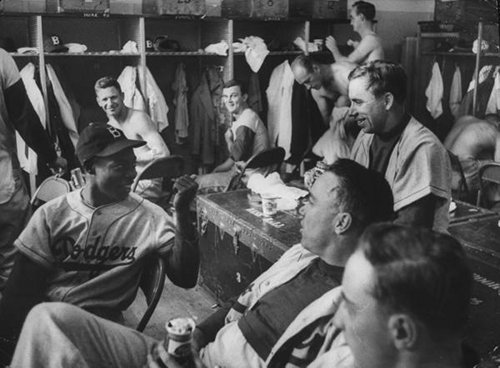
Back in high school, my close male friends called me “Mama McKay.” It started out as a way to poke fun at my tendency to make sure everyone was taken care of and for being the guy who’d say “Fellas, maybe we shouldn’t be doing this,” whenever we were about to take part in some potentially dangerous or criminal teenage hijinks. The nickname rubbed me the wrong way at first, but I soon accepted it and even became a little proud of it.
We had nicknames for other guys in the group as well. We called one guy “Crip” because when he first started hanging out with us, he had a foot in a cast and was on crutches. For a long time, we didn’t even know his real name. It was just Crip. There were other nicknames that were designed to infantilize and emasculate. When we found out that “Drew Bear” was the pet name my best friend Andrew’s mom had for him, we started calling him that first as a joke, and the name stuck. Another guy was “Indian Princess.” I don’t even remember how that one was coined.
On the football team, especially among the linemen, nicknames abounded. We called one big guy “Happy Fat” because he was, well, happy and fat. Another guy we called “Squints” because his cheeks were so fat it looked like he was squinting all the time. Then there was “Donuts.” He liked donuts. A lot.
An unspoken rule about all these mocking monikers us guys had for each other was that only guys in the “gang,” could call each other by their respective nicknames. If an outsider tried to use the name, they’d be given the cold shoulder or simply told outright to “Shut the hell up.”
While this very distinctly male ritual might seem sort of silly and superficial, the practice of nicknaming has been studied by anthropologists and sociologists, and can in fact offer some fascinating insights into manliness and the bonds between men.
What Are Nicknames?
The word nickname comes from the Middle English “eke name,” or extra name. Nicknames are names that are substituted for a given name but have not been legalized. While using someone’s given name and title shows deference and respect, using their nickname is an informal form of address.
In small communities, derisive nicknames are often used to refer to people behind their backs, and the nicknamed individual may not even know about the epithet. Other nicknames are used to refer to or address someone directly. These fall into several categories:
Referential nickname. These are nicknames bestowed on public figures, and are often used to refer to politicians and sports figures. For example Andrew Jackson was known as “Old Hickory” and Winston Churchill was called “The British Bulldog.” And of course in times past evocative nicknames for athletes abounded: Lou “The Iron Horse” Gehrig, Harold “The Galloping Ghost” Grange, Earvin “Magic” Johnson, Karl “The Mailman” Malone, William “The Refrigerator” Perry, and so on. Boxers have always been some of the most nicknamed athletes — pugilist John L. Sullivan (who graces the AoM masthead) had half a dozen monikers or more, including “The Prizefighting Caesar,” “The Hercules of the Ring,” “The Boston Strongboy,” and my favorite, “His Fistic Highness.”
Sports nicknames linger on today, but have been in decline since their golden age in the 1920s, when childhood nicknames were more common, and colorful journalists sought to punch up their writing by christening athletes who had made it to adulthood without one. Today’s athletes lack the intimacy and accessibility that allowed nicknames to thrive, and because all nicknames are bestowed by others and thus lie outside the control of the named, modern athletes often eschew them in favor of stricter management of their “personal brand.”
As the name implies, these nicknames are used to refer to someone — not to address them directly. You wouldn’t have gone up to Mr. Gehrig and said, “Hey Iron Horse, how’s it going?”
Private nickname. Also known as a love-name, or pet-name, these names are typically used between lovers only when they are alone (or by couples who are impervious to the eye-rolls of their friends). Think “Sweetie Pie” or “Honey Buns.” Private nicknames give couples a sense of intimacy, as they are names known and used only by each other, which helps create a little pocket and hedge against the outside world.
Public nickname. A public nickname is one that is often given to a person in his childhood by family or friends, and which he carries with him everywhere he goes — it has a achieved a near permanent status. The person may introduce themselves to new people with the nickname, and friends and associates may not even know the person’s real name. For example, Kate’s uncle’s real name is James, but as a kid his brother started calling him “Fuzz,” because his neck hair grew back so quickly after haircuts. His dad worked with a not-so-bright guy who morphed Fuzz into “Buzz.” Friends and family found that so funny they all started using it. Today, he’s Buzz to pretty much everybody and introduces himself that way.
Public nicknames differ from diminutives, which represent variations on one’s given name: Bobby=Robert, Smith=Smitty. True nicknames are complete departures from the root of one’s real name.
Generic. These are less personal, off-the-cuff nicknames that are given to those who fit certain categories. “Doc” for a doctor, “Shorty” for a vertically-challenged individual, “Paddy” for an Irishman, and so on.
Group nicknames. At last we come to the type of nickname that we will be focusing on today. These nicknames are bestowed on members of a group by each other, and only used within the group. It’s the difference between Winston Churchill being called “The British Bulldog” by the public, and his being known as “Copperknob” (for his red hair) among his childhood chums at the all-boys Harrow School.
Group nicknames are an almost exclusively masculine domain, and their purpose and function among men will now be explored.
The Purpose and Function of Nicknames Within All-Male Groups
At their core, group nicknames are boundary-defining and boundary-maintaining mechanisms that draw a line both between who is in a group of men and who is out, and between that group and the outside world.
How Nicknames Set a Group and Its Members Apart
Group nicknames thrive within small, insular tribes, gangs, and teams of men who experience regular face-to-face contact, and especially among those male groups which share in a common purpose and set of risks, and together must tackle difficult challenges. Think of military units, criminal organizations like the Mafia, motorcycle gangs, football teams, pioneering and adventure expeditions, and men whose employment isolates them from the outside world (miners, loggers, etc.).
Men have a desire to feel that our group is tighter and better than other groups in the same category. And so the cohesiveness of these kinds of male groups is driven by an “us versus them” mentality — we band of brothers against the outside world. Part of what creates this distinct sense of “us” is the use of names known only to each other. Nicknames create a special language that outsiders aren’t privy to (in addition to nicknaming other group members, men, especially in the military, come up with their own names for their equipment, living quarters, and so on). Even if an outsider knows what a group member’s nickname is, he also knows he dare not use it to address him without causing offense – that privilege is reserved for his comrades.
Nicknames not only set a group apart from the outside world by creating a special language, they also foster a distinct identity for the group and its members. In religious rituals in which an initiate is inducted into a priesthood or order, they are often given a new name to signify their new life and the new behaviors that will be expected of them. In receiving a new name, you become part of a new “family.” In the same way, a nickname helps you shed the expectations tied to your given name for a time, and settle into your role in the group. For example, Army Lt. Mike Smith may be a gentle, happy husband and father of three when he’s home in Ohio, but when he’s stationed at a remote outpost in Afghanistan, he’s a different guy, with a different name, a different family, and a different code.
How Nicknames Indicate a Man’s Status and Inclusion in a Group
While nicknames separate a group from the outside world, they also demarcate the status of an individual man within that group — whether he is an accepted, respected, and integrated member of the group, or sits on the periphery.
The interesting thing about nicknames is that while derisive nicknames used behind someone’s back are utilized to shame someone in a community and designate them as an outsider, mocking nicknames (and in most male groups, nicknames are) are given to members of all male-groups to mark them as an insider. What explains this seeming paradox?
Nicknames are usually first given to guys who are sitting on the “bubble” of the group. The other members aren’t quite sure about him, and throwing out the nickname is a way of feeling the guy out. If he demonstrates he can good-naturedly accept an insulting nickname from his fellow members, he proves that he trusts them — that he knows there is no malice behind a moniker that in another context would be considered a putdown. So while a nickname often starts as a form of ribbing, if the member is able to take it, he will become more integrated into the group. In a way, it’s a form of hazing. Thus nicknames in male groups, despite looking like insults to outsiders, are actually honorific titles showing that a man has been accepted by the others.
Conversely, a man who will not accept his nickname — “My name is Ralph! Don’t call me Dumbo!” — shows that he does not trust his brothers and thus cannot be fully integrated into the group.
How Nicknames Test and Solidify the Bonds Between Men
Once nicknames have been established, they serve to test and reinforce the bonds between the men in a group.
You yourself may have used, or seen other men use, seemingly derogatory language in greeting a friend. “Hey bastard!” “What’s up fat ass?” What may seem to others to be a puzzling ritual and paradoxical way to demonstrate one’s friendship, can actually be a way for men to show — and to test — the solidity of their bond. A man will use an insulting greeting when he feels confident enough in the relationship to know he will not offend. At the same time, if the greeting does evoke a negative response — perhaps one friend has been nursing a grudge unbeknownst to the other — it will bring this rift to the surface. “Hey bastard!” “Who you calling a bastard, you asshole?” As Diego Gambetta, author of Code of the Underworld, puts it, when the interaction does engender “a negative response, this brings a switch from innocent banter to strategic interaction.” This “insulting” greeting can serve to ferret out and then deal with ill-feelings.
In the same way, each time a man answers to his group nickname without umbrage, it indicates that the ties between the men remain solid – it’s a constant sonar test, sounding the depth of those bonds. In groups that face risk and challenge together, trust and loyalty are paramount, and nicknames help men to know they have placed their trust and loyalty well.
Now that you understand the function of nicknames within a male group, it becomes possible to finally see the underlying rationale behind the prohibition against giving yourself a nickname, and why we find others’ attempts to do so ridiculous and funny — nicknames must be bestowed upon you by your male peers. Inventing a nickname for yourself is read as an attempt at gaining a privilege without earning it first — something a low status man like George Costanza would do.
The Genesis of Nicknames in Male Groups
Nicknames, which contrast with formal, deferential modes of address, demonstrate the equality of members of a group, and any fully fledged member of a group may bestow a nickname on another. The ability to coin a good, clever nickname can in turn give a member more status and popularity.
What makes a good nickname? A nickname that will stick manages to distill down a story or a defining personal trait into one or two words. Bernard Rosenberg, who studied criminal gangs, noted how gang members would “size each other up, and then, put their findings in pithy nicknames–names which explain the man in a word–his weakness, his racket, how he works, or some peculiarity about him.” Anthropologist Anthony P. Cohen argues that, “The hallmark of the apt nickname is that deft touch of nuance, mocking humour, pungent wit, and droll equivocality.” Meeting these requirements and coming up with a good nickname isn’t easy, which is why the man who does so gets kudos from the others.
As discussed above, many male nicknames are mocking in nature, and the largest percentage of them are rooted in a man’s physical characteristics — particularly of the unflattering variety. As Russian philosopher and literary critic Mikhail Bakhtin noted, “Wherever men laugh and curse, particularly in a familiar environment, their speech is filled with bodily images. The body copulates, defecates, overeats, and men’s speech is flooded with genitals, bellies, defecations, urine, disease, noses, mouths and dismembered parts.”
The popularity of body-part nicknames in groups of men speaks to another one of their purposes: tension-reducer. Especially important for tight-knit groups under stress. Nicknames evoke laughter because of their contrast with more formal modes of address, their common use of phonemic repetition (“Mama McKay”), and, because body parts can be pretty funny.
Insulting nicknames based on a man’s physical qualities also serve to emphasize the distinct maleness of the group — one cannot imagine female friends calling a big-nosed girl in the group “Birdie” or an overweight one “Chubs,” without causing deep offense and hurt feelings.
But unflattering physical attributes are not the only fodder for nicknames — they can come from a variety of sources of inspiration. And it is possible to earn that most desirable of male nicknames – a descriptive one based on one’s exemplary skills. Examples of nicknames culled by Diego Gambetta from the court records of Italian Mafioso offer an interesting look at the different categories into which male nicknames can fall:
Physical Nicknames
- u’Beddu (Handsome)
- Il Gosso (Fat)
- Tignusu (Hairless)
- Turchiceddu (Little Turk – the man in question had a dark complexion)
- Faccia di Pala (Shovel Face – “because of the wide shape of his face”)
- Pietro u’Zappuni (“two horsey front teeth”)
- Il Vampiro (the man in question was tall, thin, and spooky)
- Mussu di Ficurindia (Prickly Pear Mouth)
Descriptive Nicknames
- L’Ingegnere (Engineer — “He was in charge of fixing radios used by smugglers at sea”)
- Il Senatore. (Senator –This man did not hold office himself, but “was involved with politicians, he could rely on all sorts of favors”)
- U’Tratturi (Tractor—This man was skilled “in murdering people. He flattened everything and wherever he went the grass stopped growing”)
Titled Nicknames
- Reella Lalsa (King of Kalsa)
- Generale (General)
- Principe di Villagrazia (Prince of Villagrazia)
Behavioral Nicknames
- u’Tranquillu (Quiet)
- u’Guappo (Braggart)
- u’Cori Granni (Big heart)
- Farfagnedda (Stammer)
- Pupo (Dapper)
- Cacciatore (Hunter)
- Studenete (“because he went to university, but never graduated”)
- u’Masculiddu (Little Male)
Animal Nicknames
- Il Cane (Dog)
- Cavadduzza (Little Horse)
- Conigghiu (Rabbit)
- Farfalla (Butterfly)
Objects Nicknames
- Alfio Lupara (Sawed-off Shotgun)
- Pinnaredda (Little Father)
- Putina (Little Nail)
Some men were even named for vegetables:
- Milinciana (Eggplant)
- Cipudda (Onion)
It wasn’t just underlings who had derogatory nicknames either — mob bosses had them too:
- Ninu u’Babbu (Nino the Fool)
- Fifu Tistuni (Thick Head)
- Piddu Chiacchiera (Joe Baloney – know for exaggerating events)
- Il Corto (The Short)
According to Gambetta’s research, within the Mafia, hit men are the most likely to have a nickname — most likely because of yet another purpose of nicknames , at least in criminal organizations — keeping one’s identity secret.
Why Has the Use of Nicknames Declined?
Sociologists say that the use of nicknames of all kinds has declined over the last few decades. Why is this?
One final, very practical purpose of nicknames – of both the group and other varieties – is simply to distinguish one person from another when many individuals in a community have the same name. So, for example, they used to thrive in small villages in the Mediterranean, where surnames were few, and the tradition was to name a firstborn child after his or her parents or grandparents, or for the local Catholic patron saints. The result was a lot of people with the same names, and nicknames helped folks keep track of who was who.
These days, the diversity in names is on the upswing. As The New York Times reported:
“According to the Social Security Administration, the 10 most popular baby names for boys in 1956 represented 31.1 percent of the total born. In 1986, around the time many of today’s athletes were born, the top 10 represented only 21.3 percent of the total. In 2010, the number dropped to 8.4 percent.”
With so much variation, nicknames just aren’t as needed anymore.
Another reason for the general decline in nicknames may be found in a culture that takes offense to things more easily than it used to. As psychology professor Cleveland Evans put it, nicknames are “humorous or non-complimentary, and we may live in a culture where people are less willing to accept names that are less complimentary.”
When it comes to all-male groups, the decline in nicknames can simply be traced to the decline in the existence of these kinds of groups at all. As we mentioned above, nicknames thrive in small, insular groups that offer plenty of face-to-face contact. As a group interacts less, gets bigger, and becomes penetrated by outside forces and people, nicknames disappear.
The way in which this plays out can be seen by contrasting two organized crime syndicates: the Italian Mafia and the Russian Vory. In the Mafia, the organization is tighter and based on long-standing kinship and community ties, and its members’ nicknames are left to emerge naturally. The Vory, on the other hand, are a much looser and fragmented organization which originates not from bloodlines but in prison, and is made up of members of different nationalities and ethnicities. So it is interesting to note that Vory choose their own nickname when they are initiated into the group, instead of having them assigned by others.
The way in which the breakdown of the male group leads to the disappearance of nicknames can be seen in sports as well. In addition to the reasons for the decline of athlete nicknames mentioned above, it can also be traced to a breakdown in the bonds among players (who, besides reporters, were the ones who used to mint monikers for each other). Players don’t typically stay with one team and with a single set of teammates for very long anymore, and when they are with a team, they spend less time socializing with their teammates. As NBA Hall of Famer Walt “Clyde” Frazier put it:
“With the communication age, everybody’s on the computer, the cellphones, there’s not a lot of communication. When we traveled, there were only three channels, and all during the day, there was nothing but soaps on,” Frazier added. “So the guys spent a lot of time together, playing cards, talking, hanging around in the same places, traveling together on the bus or whatever it might be. There was a lot of camaraderie among the players.”
As it is on the hardwood, so it is in life. As tight-knit groups of men becomes more scarce, nicknames disappear too. All of which is to say, it’s harder than ever to become a T-Bone these days…or even a Koko.
Do you have a nickname that only your buds call you? Share it and the story behind it with us in the comments.
Postscript: If you enjoyed this topic, which relates to the broader topic of honor among men, then stay tuned as next week we will begin a series on the subject of honor itself.
____________________
Sources:
Code of the Underworld by Diego Gambetta
Dictionary of Epithets and Terms of Address by Leslie Dunkling
Belonging: Identity and Social Organisation in British Rural Cultures by Anthony P. Cohen
“Nicknames as Symbolic Inversions” in Honour and Violence by Anton Blok


